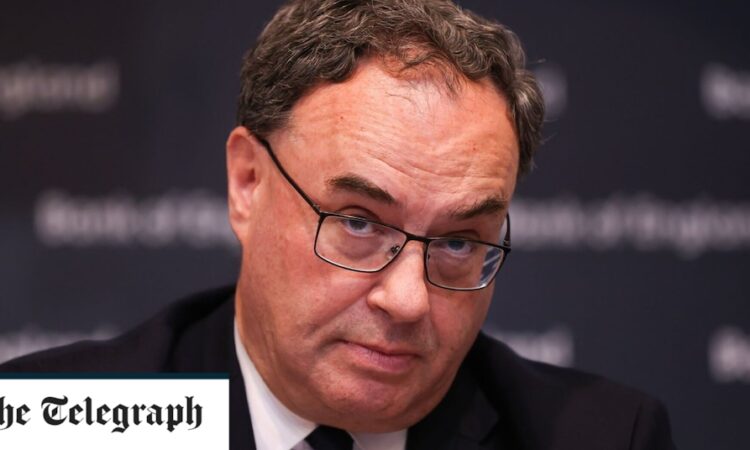
It came as the Bank blamed rising cost of food and other goods for “almost all” of the unexpectedly high inflation over the past few months.
The Bank believes food costs, which are already climbing at their fastest pace in 45 years, will keep rising for the rest of the year.
In its latest economic outlook, Threadneedle Street said: “Food price inflation is likely to fall back more slowly than previously expected.
“The current near-term projection for food inflation in the UK does not include any reduction in the average level of food prices, only a slowing in the rate of inflation.”
Bank governor Andrew Bailey tried to reassure households that the peak in inflation had already passed, though he was unsure when the cost of a weekly shop would come down.
He said: “Energy prices have fallen from their peaks, and that will now start to come through as lower inflation.
“Food price inflation should ease too, though we can be less sure about the timing.”
Despite soaring food costs, Mr Bailey said he did not think supermarkets and other grocers were profiteering.
Speaking to the BBC, he said: “It actually doesn’t look like that’s going on.”
The Office for National Statistics last month said it would have expected to see the global food price falls reflected in supermarkets “but we’re not there yet”.
Food and supermarkets chiefs have been growing increasingly frustrated at the claims that they are not pulling prices lower quickly enough, with the chief executive of Magnum and Marmite maker Unilever angrily rebuffing the allegations earlier this month.
In a heated media call, Alan Jope told reporters: “I know it’s an inconvenient truth, but we have not been profiteering in any way, shape, or form.”
Sainsburys has also brushed off claims it was keeping prices higher than necessary. Chief executive Simon Roberts earlier this month said Britain’s second largest supermarket was doing “all we can” to rein in inflation.
Prices for milk, bread and butter have all been brought down at the major supermarkets in response to lower dairy and wheat wholesale prices, although costs at the checkout are typically still significantly above where they were before the war in Ukraine.
The Treasury said it had “listened to the views of the sector about the drivers of food inflation and agreed that industry will continue to engage with senior government ministers on the matter and its impact on consumers”.
Helen Dickinson, chief executive of the British Retail Consortium, said the meeting was “very constructive”.




